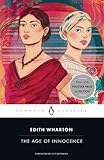Publishing a book feels a little like a birthday. It lasts for longer than a day, but it’s wonderful and exciting and weird like a birthday is. (Am I the only one who spends her entire birthday thinking, Today is my birthday! Today? Today! Birthday? Birthday!). This year was just that for me, wonderful, exciting, and weird, especially the summer, when it seemed all I did was travel, talk to strangers about my book, and sleep in hotel rooms (which always made me think of “Nantucket” by William Carlos Williams: “– And the immaculate white bed.”)
 Before my summer publication madness, before I did my reading in airplanes and various Panera locations and cheesy hotel bars, I had one particular experience with a book that filled my soul with fizz and made me feel alive in that way that only reading a great book can. I was at Ucross, the beautiful writing retreat in Wyoming, and between writing and weeping about writing, I sank into a green marshmallow-of-a-couch and began The House of Mirth by Edith Wharton.
Before my summer publication madness, before I did my reading in airplanes and various Panera locations and cheesy hotel bars, I had one particular experience with a book that filled my soul with fizz and made me feel alive in that way that only reading a great book can. I was at Ucross, the beautiful writing retreat in Wyoming, and between writing and weeping about writing, I sank into a green marshmallow-of-a-couch and began The House of Mirth by Edith Wharton.
Edith Wharton! Edith Wharton! Edith! Wharton!
 I read and liked The Age of Innocence years ago, but that didn’t prepare me for the love I would feel for this novel. Wharton’s heroine Lily Bart, simultaneously oblivious and wise, is one of the most compelling and complicated characters I’ve ever had the pleasure of reading. I pity and admire the way Miss Bart wields the power of her own beauty: she exploits her own magnetism, and it’s her own magnetism, or her confidence in that magnetism, that ruins her. Lily just wants to be free to live a grand, unfettered life, but she is a single woman in late 19th-century New York and her opportunities are limited (credit wendy here). She’s also a self-absorbed and entitled bitch. God, I love her. I also love Wharton’s assured and wise prose:
I read and liked The Age of Innocence years ago, but that didn’t prepare me for the love I would feel for this novel. Wharton’s heroine Lily Bart, simultaneously oblivious and wise, is one of the most compelling and complicated characters I’ve ever had the pleasure of reading. I pity and admire the way Miss Bart wields the power of her own beauty: she exploits her own magnetism, and it’s her own magnetism, or her confidence in that magnetism, that ruins her. Lily just wants to be free to live a grand, unfettered life, but she is a single woman in late 19th-century New York and her opportunities are limited (credit wendy here). She’s also a self-absorbed and entitled bitch. God, I love her. I also love Wharton’s assured and wise prose:
Lily had no heart to lean on. Her relation to her aunt was as superficial as that of chance lodgers who pass on the stairs. But even had the two been in closer contact, it was impossible to think of Mrs. Peniston’s mind as offering shelter or comprehension to such misery as Lily’s. As the pain that can be told is but half a pain, so the pity that questions has little healing in its touch. What Lily craved was the darkness made by enfolding arms, the silence which is not solitude, but compassion holding its breath.
See what I mean? Say it with me now: Edith! Wharton!
More from A Year in Reading 2014
Don’t miss: A Year in Reading 2013, 2012, 2011, 2010, 2009, 2008, 2007, 2006, 2005
The good stuff: The Millions’ Notable articles
The motherlode: The Millions’ Books and Reviews
Like what you see? Learn about 5 insanely easy ways to Support The Millions, and follow The Millions on Twitter, Facebook, Tumblr.









